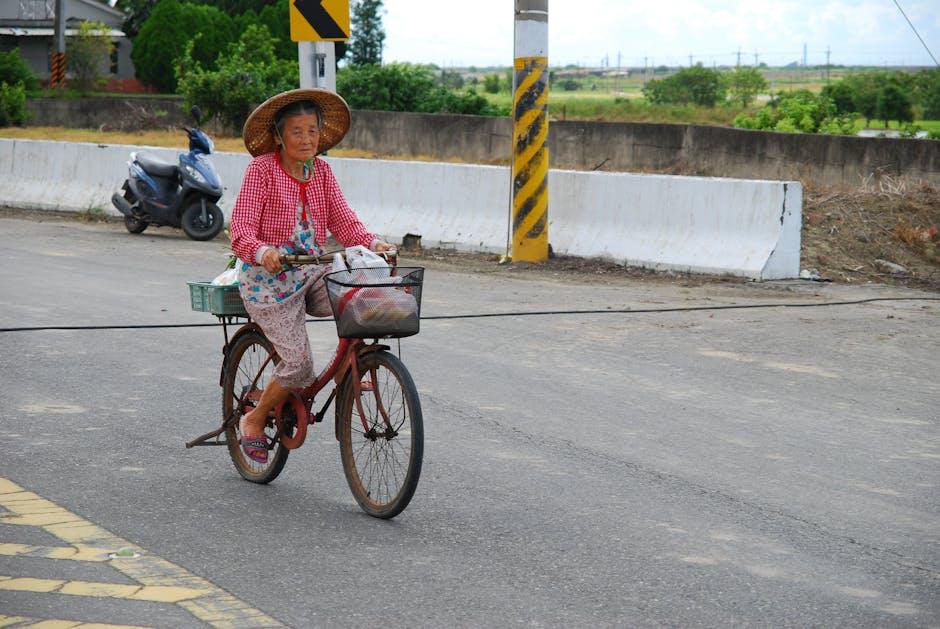In the delicate dance of human relationships, the balance between independence and over-reliance is a subtle yet powerful force that shapes our lives. As we navigate through the intricacies of personal and professional connections, the question of how much to lean on others and when to stand alone is ever-present. In a world where collaboration is key, yet self-sufficiency is prized, finding this equilibrium is both an art and a science. This article delves into the nuanced interplay between fostering independence and avoiding the pitfalls of over-reliance, exploring how striking the right balance can lead to more fulfilling and resilient relationships. Through a blend of insights and anecdotes, we aim to unravel the complexities of this dynamic, offering perspectives that resonate with our innate desire for both connection and autonomy.
Navigating the Fine Line Between Support and Autonomy
In the intricate dance of caregiving, finding the equilibrium between empowering independence and avoiding over-reliance is a delicate art. It’s essential to recognize that while providing support can be nurturing, it can inadvertently stifle growth if not balanced correctly. Here are a few considerations to help maintain this balance:
- Encourage Self-Advocacy: Empower individuals to express their needs and desires. This fosters a sense of ownership over their decisions and helps them develop critical problem-solving skills.
- Set Clear Boundaries: Clearly define the extent of your support. This not only protects your energy but also encourages the individual to explore their own capabilities.
- Celebrate Small Victories: Acknowledge and celebrate progress, no matter how small. This boosts confidence and reinforces the value of self-sufficiency.
By weaving these strategies into your approach, you create a supportive environment that respects autonomy while providing the necessary safety net. It’s about fostering resilience and self-reliance, allowing individuals to thrive while knowing support is always within reach.

Empowering Independence While Ensuring Safety
In today’s world, the quest to foster autonomy while ensuring security is a delicate dance. Striking this balance requires a nuanced approach that prioritizes both freedom and protection. Empowering independence involves encouraging individuals to make their own choices and learn from experiences, which can significantly boost confidence and self-reliance. This empowerment can be achieved through a variety of methods:
- Providing opportunities for decision-making
- Encouraging problem-solving skills
- Offering support without being overbearing
However, it is crucial to ensure that this newfound independence does not lead to isolation or vulnerability.
Ensuring safety is equally vital, as it provides a safety net for when things go awry. This can be accomplished by:
- Establishing clear guidelines and boundaries
- Implementing safety measures and protocols
- Maintaining open lines of communication
By carefully weaving these elements together, caregivers and loved ones can cultivate an environment where independence is nurtured without compromising on security, allowing individuals to thrive while feeling supported and safeguarded.

Cultivating Self-Reliance Through Mindful Assistance
In the delicate dance of fostering independence while providing support, the key lies in offering mindful assistance. This approach requires us to be attuned to the needs of those we support, allowing them to grow their skills and confidence without fostering a sense of dependency. Here are some ways to strike this balance:
- Encourage Problem-Solving: Guide individuals to find their own solutions rather than providing immediate answers. This nurtures critical thinking and self-efficacy.
- Set Clear Boundaries: Define the scope of your assistance to ensure that it complements rather than replaces their abilities.
- Foster Decision-Making: Allow them to make choices, even if it means learning from mistakes. This empowers them to take ownership of their decisions.
- Provide Resources, Not Resolutions: Offer tools and information that enable independent action, rather than solving the problem for them.
By adopting these strategies, we can cultivate an environment where individuals feel supported yet empowered to navigate challenges on their own. This balance is crucial in developing self-reliant individuals who are capable of thriving both in personal and professional spheres.

Crafting Personalized Strategies for Balanced Care
Creating a harmonious balance between fostering independence and preventing over-reliance in care settings requires a tailored approach. Personalized strategies can effectively bridge this delicate gap by emphasizing the unique needs and preferences of each individual. These strategies may include:
- Empowerment through Choice: Encourage individuals to make their own decisions wherever possible, fostering a sense of control and autonomy.
- Customized Support Plans: Develop care plans that are adaptable and reflect the evolving needs of the person, ensuring they receive the right level of support at the right time.
- Skill-Building Activities: Incorporate activities that build confidence and skills, promoting self-reliance while providing a safety net of support.
- Regular Evaluations: Conduct frequent assessments to adjust the level of care, ensuring that it remains balanced and appropriate.
Incorporating these personalized elements into care plans can help maintain a balance, ensuring individuals feel both supported and empowered to thrive independently.






























